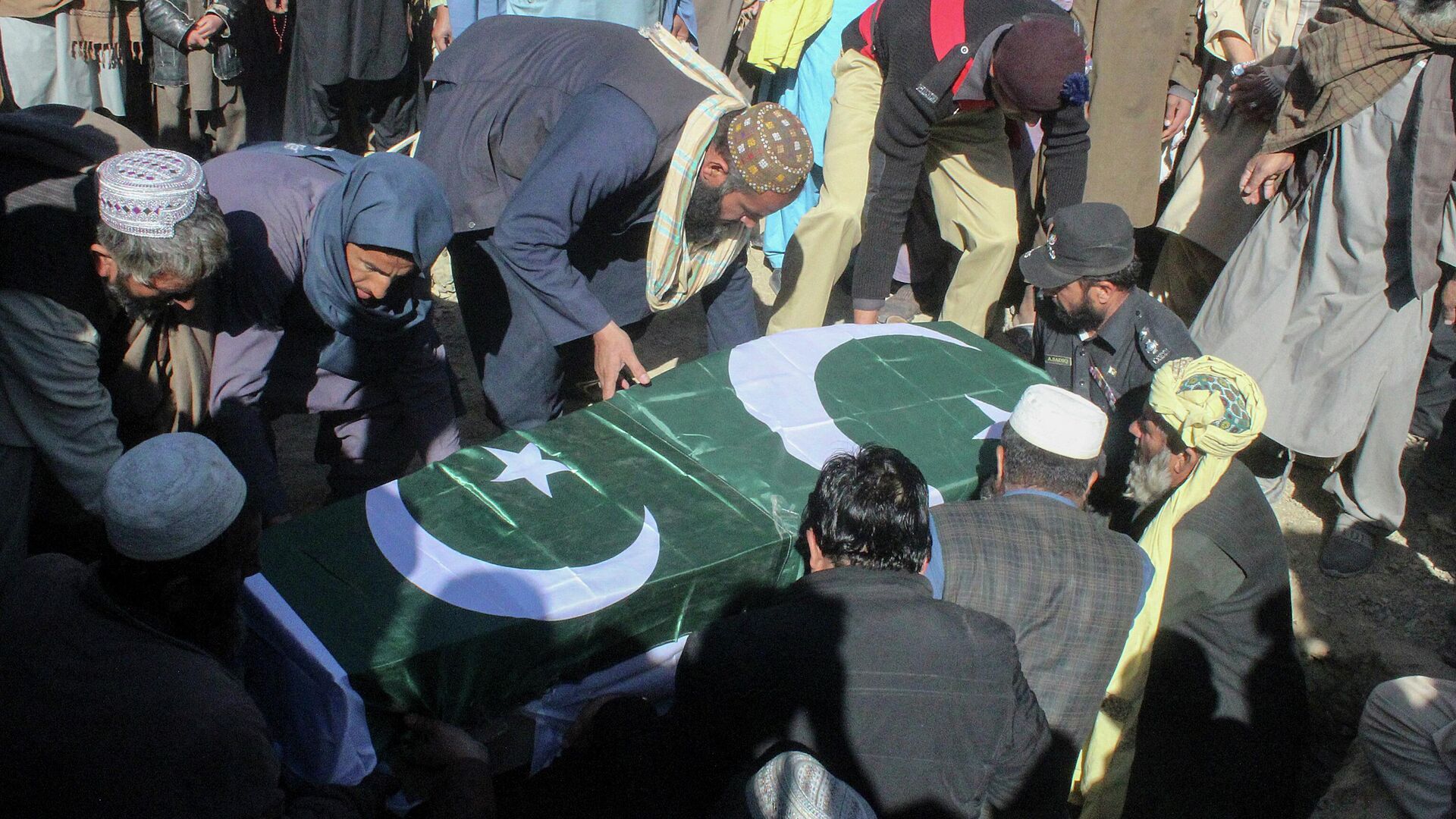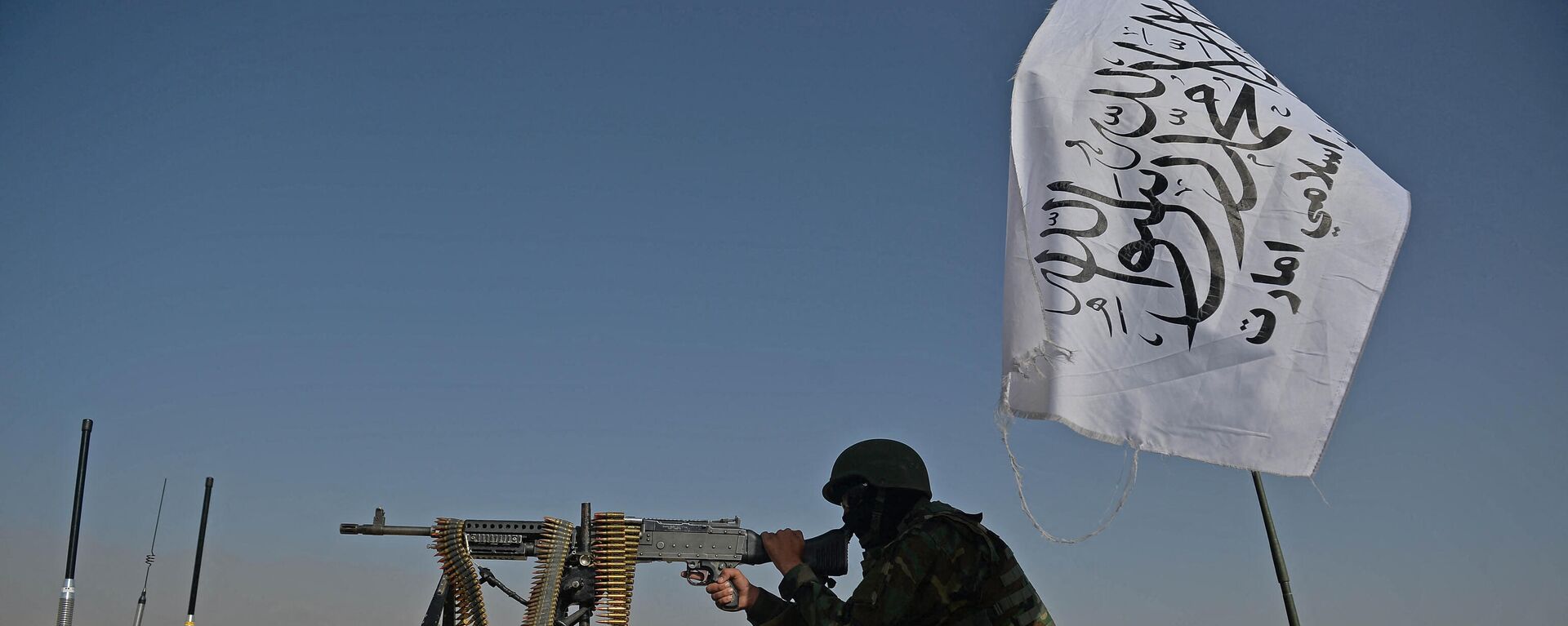TTP Warns of 'Intensifying' Attacks Against Pakistan Amid Friction Between Taliban and Islamabad
12:41 GMT 09.05.2022 (Updated: 18:02 GMT 08.12.2022)

© AFP 2023 / ABDUL BASIT
Subscribe
The TTP, which aims to overthrow the Pakistani government through a jihadist campaign, has been held responsible for around 1,800 terrorist attacks in Pakistan over the last decade or so. It has stepped up its attacks in Pakistan since last year. A UN report has claimed that TTP is headquartered in eastern Afghanistan’s Nangarhar province.
Banned terrorist group Tehreek-e-Taliban Pakistan (TTP), an offshoot of the Afghan Taliban*, on Monday warned of “intensifying” its operations against the Pakistani state in coming days.
In a statement addressed to Pakistani security personnel in the armed forces as well as other agencies, TTP spokesperson Mohammad Khurasani urged them to “stop working” in an “enslaved” force which he called an “enemy of Islam”.
The statement went on to condemn Pakistan’s “political rulers”, who the TTP remarked were trained in western educational institutions in the UK, and the US and returned to the country to rule as per the “secular and democratic” traditions.
“They follow un-Islamic practices of governance,” it said.
The TTP also slammed the security forces for “enforced disapperances” and killings of Baloch and Pashtun youth in Balochistan as well as in the Waziristan region of the Khyber Pakhtunkhwa province respectively.
The warning by the TTP comes against the backdrop of palpable tensions between Kabul and Islamabad over the airstrikes reportedly carried out by Pakistan in Afghanistan’s Kunar and Khost provinces on 16 April.
While Islamabad is yet to officially confirm the strikes, Taliban last month summoned the Pakistani Ambassador to Kabul and issued a “demarche” over the incident.
A report in Afghan news agency Khaama Press claimed that the strikes were intended to target TTP camps in the region. The report also cited local officials as saying that "at least 33 people, including women and children” were killed in the air raids.
“Foreign Minister Mawlawi Amir Khan Muttaqi said all military violations including that in Khost and Kunar must be prevented as such acts deteriorates relations between the two countries,” Taliban’s Foreign Ministry spokesperson Abdul Qahar Balkhi said in a statement.
Taliban also warned Pakistan that it won’t tolerate any more “invasions”.
The airstrikes were also condemned by the TTP, which said in a statement that “it is not masculine for the Pakistani security personnel to target women and children”.
After the strikes, Pakistan’s Foreign Ministry said in a statement that “terrorists are using Afghan soil with impunity to carry out activities inside Pakistan”.
“Unfortunately, elements of banned terrorist groups in the border region, including TTP, have continued to attack Pakistan's border security posts, resulting into martyrdom of several Pakistani troops,” the Pakistani statement added.
A short-lived truce between the TTP and former Imran Khan government in Pakistan was reportedly brokered by Taliban's Interior Minister Sirajuddin Haqqani last November.
Multiple Pakistani troops have been killed in terrorist attacks claimed by the TTP this month as well, as per a statement from Pakistani Armed Forces' media wing Inter-Services Public Relations (ISPR).
While Pakistan has been one of the strongest backers of the Taliban since it stormed back to power in Kabul last August, Islamabad has also served to remind the Islamist group on several occasions that it shouldn’t let the Afghan territory be used by terrorist organisations to target third countries.
The Taliban gave its commitment in writing during the Doha Agreement of February 2020 that it won't allow its territory be used like that.
A report by Islamabad-based think tank Pakistan Institute for Peace Studies (PIPS) said this January that TTP scaled up its attacks in Pakistan in 2021 by 84 per cent, as compared to 2020. The report also blamed the Taliban for not taking steps to eliminate TTP's presence from Afghan territory.
Just like the Taliban, the TTP opposes the ongoing fencing of the Pakistan-Afghanistan border, a major source of friction between the two neighbours.
*The Taliban is under UN sanctions over terrorist activities.


